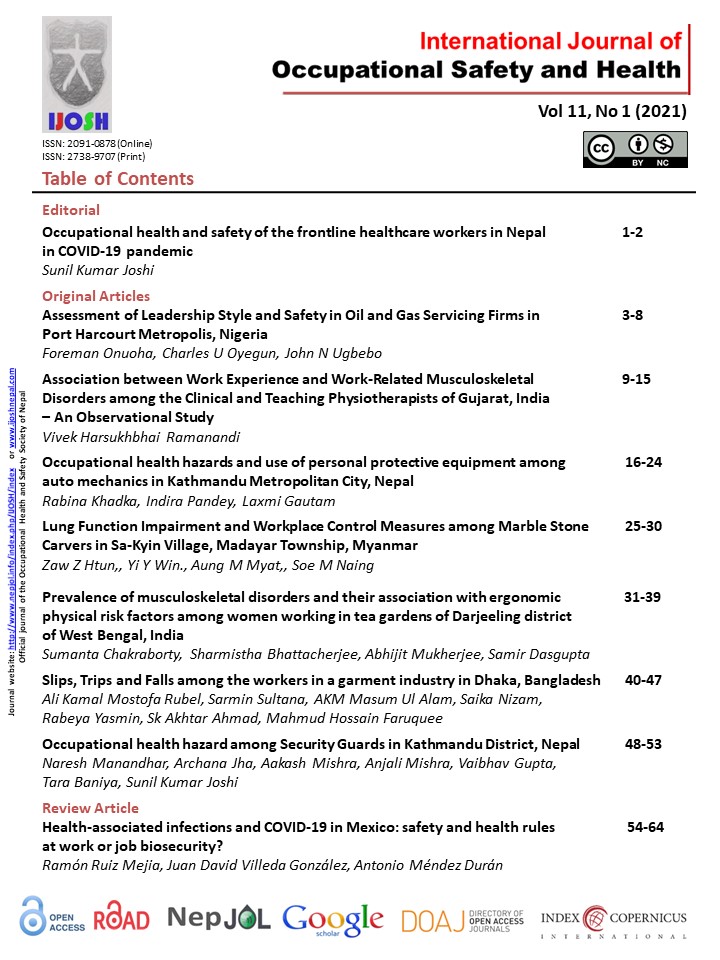Association between Work Experience and Work-Related Musculoskeletal Disorders among the Clinical and Teaching Physiotherapists of Gujarat, India – An Observational Study
DOI:
https://doi.org/10.3126/ijosh.v11i1.33372Keywords:
Musculoskeletal disorders, Occupational Health, Occupational injury, Physical therapists, Prevalence, Risk factorsAbstract
Introduction: Work-related musculoskeletal disorders (MSDs) are present universally where physiotherapists are found to be at higher risk of being affected due to the postures attained at work. This can lead to excessive exertion associated with significant discomfort and pain in joints. In addition to these, the anatomical, physiological and physical characteristics of males and females are disparate so gender-based differences may also affect. However, the paucity of data for correlating the years of experience with MSDs was found in Gujarat. Hence, the present study was undertaken to investigate the association between the prevalence of MSDs with an increase in work experience among the physiotherapists of Gujarat.
Methods: This was an online cross-sectional survey study where 322 physiotherapists were included after gaining informed electronic consent. Prevalence rates were found by employing a standardized Nordic Musculoskeletal Questionnaire (NMQ) and non - parametric tests were used for data analysis.
Results: Present study showed no statistically significant relationship between the increase in work experience and work-related MSDs prevalence. It was also observed that females (68.63%) have more prevalence compare to males (61.19%). The majority f the physiotherapists reported complaints of MSDs in the lower back (41.30%) and neck (37.58%) regions.
Conclusion: It is inferred that the chances of being affected by MSDs do not increase with years of work experience. Moreover, female physiotherapists are more prone to MSDs. Thus, early identification and interventions through ergonomic advice and physiotherapy can prove to be very effective in declining the rate of MSDs to a notable extent.
Downloads
Downloads
Published
How to Cite
Issue
Section
License
This license enables reusers to distribute, remix, adapt, and build upon the material in any medium or format for noncommercial purposes only, and only so long as attribution is given to the creator.





